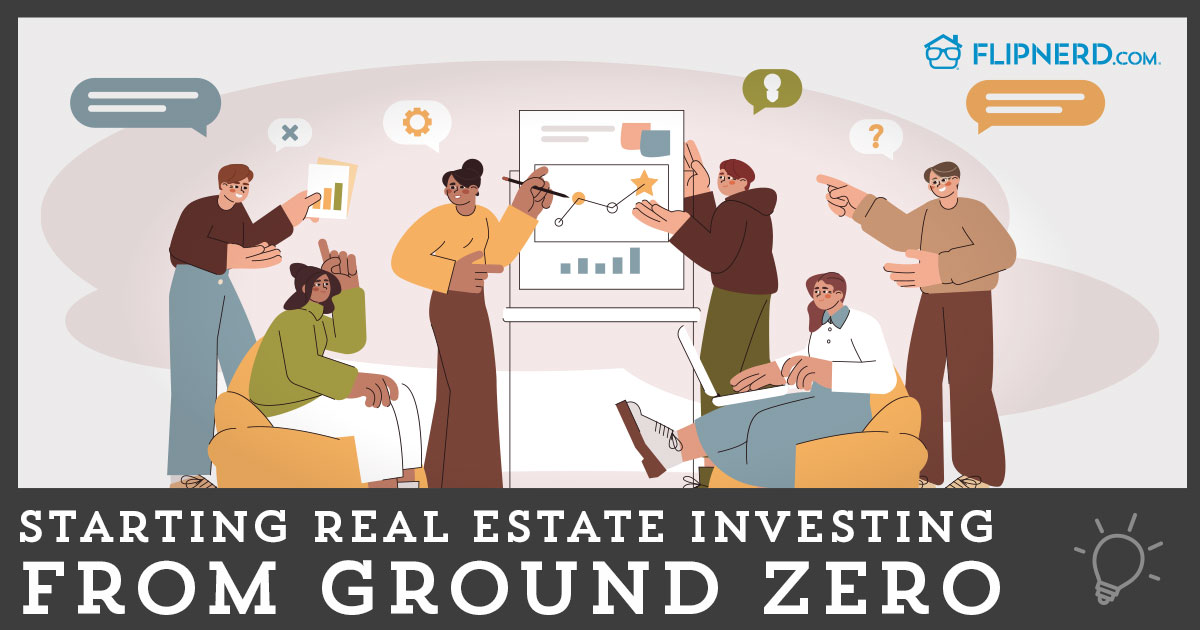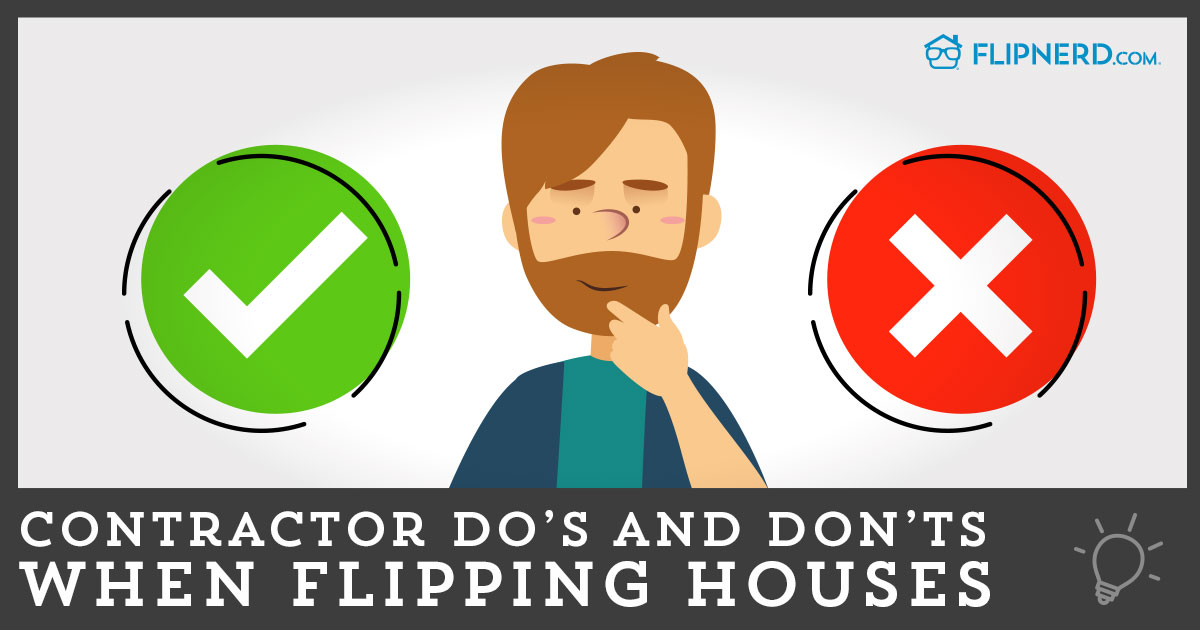Investing in real estate can bring life-changing results. Being able to provide for your family and set yourself up for an easier future is a possibility when you’re investing in real estate, but it doesn’t come without some hard truths.
Some of these hard truths are more obvious than others but they’re important considerations that should be known if you’re thinking about getting started in investing. This being said, there are solutions to many of these hardships that we’ll discuss as well.
1. You CAN Lose Money on a Deal
There are various ways you can lose money on a deal.
From the very beginning, it’s important to buy the property at the right price so that you’ll have a buffer for any unexpected expenses and can still make a profit.
If you offer too high, you’ll have trouble finding a buyer at a price that will allow you to break even and the longer you hold a property, the higher your holding costs will be.
Make sure that you’re looking at all the high-dollar areas when checking for what needs to be repaired or replaced. Missing a mechanical issue (electrical, HVAC, plumbing), foundation issue or roof that needs to be replaced can quickly bring your deal from positive to negative profits.
How to Lower Your Risk of Losing Money on a Deal
Analyze comps in the area and become very familiar with what properties are going for at retail value so that you can make a solid offer during your appointment with the seller.
You also need to become a PRO at calculating repairs or at the minimum, have an inspector or contractor come out and provide an estimate for you.
The least risky exit strategy to take advantage of is going to be assigning a property to a wholesale buyer.
On an assignment deal, you’ll find the property and provide the seller with an offer. You’ll explain to the seller that you plan on finding a buyer for the property and they will be paid the offer amount at closing from the buyer.
Be clear and upfront about your intentions!
When talking to wholesale buyers about the property, you’ll include your assignment fee in your asking price. As long as the buyer is okay with the price you’re offering, there should be no issue and you’ll receive your assignment fee at closing and the seller will receive the amount you had agreed to with them.
State laws vary regarding assigning properties so always check the laws with your local real estate attorney.
2. Marketing is Expensive (and Doesn’t Guarantee Deals!)
Marketing costs are going to vary drastically and is dependent on the size of your market, the saturation of other investors in the area, the size of the list you’re marketing to, the type of list you’re marketing to, the type of mail you’re sending out, and if you’re sending out only direct mail or if you’re also doing online marketing.
Especially in larger markets, investors can spend tens of thousands of dollars on marketing each month. As long as they’re bringing in more profit than they’re spending in advertising, there’s no reason for them to lower their ad spend each month.
This can make it hard for newer investors to compete when their starting budget is much smaller.
How to Advertise on a Budget
When you’re getting started and don’t have a large marketing budget, you have to be more creative with your marketing so that you’re stretching each and every dollar you spend.
This is when driving for dollars, using door hangers, and sending yellow letters to distressed properties you see can be your best option as they are cost friendly.
In addition, you can consider looking into smaller markets that don’t have as much competition. With less competition, your marketing budget should have a higher return-on-investment.
3. You’re Dealing with People Who are Going Through a Tough Time
Most likely, the leads you’re talking to are going through a tough time in their lives.
We talk with a lot of family members who are left a house through probate because one of their loved ones passed away. They’re stuck with a house they don’t need but a lot of times have deep memories associated with the property.
Other times, the property owner is needing the money from the sale of the house but don’t have the means to do repairs on it to have it listed on MLS.
Many new investors underestimate how much of a people business this is.
How to Build Rapport with the Seller
Listen to the seller’s story and connect with them on a personal level when you’re able to. You’re going to hear all sorts of life stories but be respectful and listen for their motivations as to why they need to sell the house.
For example, if they talk about wanting to move to be near their grandchildren, you can connect with them by adding in something personal about your family.
This will help put them at ease.
If you can get them to let their guard down, they’ll be more trusting of you and a lot of sellers want to work with the investor they feel most comfortable with.
4. Real Estate Investing Isn’t a “Get Rich Quick” Business
There are a lot of guru’s out there claiming you can “get rich quick” with little money involved but it’s a bit more complicated than that. Finding the right property to invest in takes time and in most cases, money.
As we mentioned above, there are ways to find properties without spending money but it takes more time and effort on your part.
If you’re rehabbing, buying and holding, or closing on a property and selling to another wholesaler, you’re going to have costs involved and the process takes time. You need to budget for closing costs, holding costs, repair costs (including labor and materials), and interest fees.
The higher these costs are, they lower your profit will be.
How to Make Money without Closing on a Property
Like we talked about before, assigning properties will avoid the added costs of closing and rehabbing a property.
It’s a good idea to start building a list of cash buyers so that when you find a property to assign, you can reach out to buyers who can close quickly and appreciate you bringing a deal to them.
If you can find a seller and buyer relatively quickly, you can see profit in a short amount of time.
5. It Can Take Up a LOT of Your Time
I’m sure you’ve seen real estate investors who work MAYBE 8 hours a week, bringing in HUGE profits, and are living a phenomenal life.
We know them.
Many are good friends of ours.
What people don’t see is the years that it took to get their company running largely without them. They didn’t start out that way and it took time for them to build up their business to that level.
Especially when you’re just getting started, you can easily work 18 hours a day trying to find a deal and get it closed.
You’re answering phone calls, scheduling appointments, attending the appointments, making offers, following up, finding a buyer, etc. This is all in addition to the administrative duties of owning a business and it becomes a LOT of work.
This hard work is what’s needed to build a solid foundation for your business.
Build a Team to Distribute the Workload
As time goes on and you do more deals, you’ll be able to hire your first team member who can take some of the weight off your shoulders and then you can focus on the most important aspects of the business.
A lot of investors bring on a virtual assistant to help with administrative duties and handling leads. This can bring much-needed assistance to your increasingly busy workday.
Train them really well in the beginning and they’ll be able to take care of routine tasks that are crucial to your business and help make your business run smoothly.
Slowly, you can keep bringing on more team members and that’s when you can really start scaling your business and you won’t have to work so many hours every week.
It’s a process though.
It will take time to get to that level of freedom.
6. You Will Find UNIMAGINABLE Living Conditions
Let’s not shy around the truth.
You’re going to walk in to some properties that haven’t been lived in for years and was left in such disarray that you’ll have to watch where you step and cover your nose while you walk through it.
The more distressed, the better your chances of having a lower offer accepted. If it’s in such bad shape that it’s going to take a dumpster to clean it out, the seller is most likely motivated to get rid of it and move on.
This is a good thing for investors.
These are properties that would never make it to MLS without someone else coming in, cleaning it out, and fixing it up.
Prepare Yourself for the Worst
We recommend wearing closed toe shoes that aren’t your favorite, spraying yourself with bug/flea spray, and carrying hand sanitizer with you.
As you see more and more houses, you’ll become desensitized to the filth and it’ll be easier to see what the property could be after it’s cleaned out.
While some properties you’ll look at will be unlivable, focus on accurately figuring out a repair estimate.
You just might make some of your best profits with the dirtiest of properties.
Fight Through the Struggles and Succeed
You’re going to run into obstacles as you find and close on deals and it’s how you react to them that will set you apart from other investors.
Especially as you’re just getting started, there are going to be questions you don’t know the answers to but don’t give up! As you do more deals, you’ll slowly become a local expert and working with sellers and buyers will come more naturally.
Work through problems that come your ways and you’ll come out on top!










